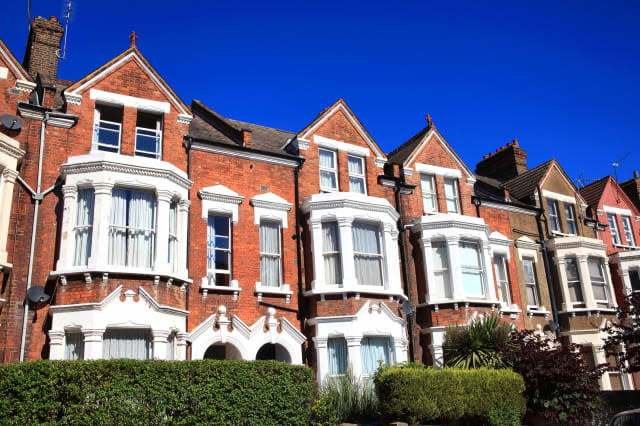Is your home worth less than before the crash?

While most of the country has seen house prices rising for the last few years, property in some areas is still worth less than in 2008, when global financial markets went into freefall.
It means hundreds of thousands of UK homeowners who bought property at the top of the market are stuck in negative equity 10 years on.
See also: Are we set for a house price collapse?
See also: House prices increase by nearly 5% since last year as growth slows
Indeed, according to online estate agents HouseSimple.com, in more than a quarter of towns and cities, average property prices today are still below 2007 values.
"The last 10 years has been a golden period for many UK homeowners who have sat back and watched the value of their homes rise to record levels," says Alex Gosling, CEO of online estate agents HouseSimple.com.
"Unfortunately, there are pockets of the UK where property prices have been literally stuck in the past. Many of these homeowners will have been in negative equity for a decade."
The worst affected towns are Blackpool and Sunderland, where average house prices remain more than 10% below pre-crash highs. Other north western towns and cities are in a similar position, while in the same period, average London prices have risen a staggering 69%.
Cambridge house price growth has been almost as high, with average prices now 64.5% higher than a decade ago.
"It must be galling for anyone who bought a property ten years ago, at the top of the market, and are sitting in a home that is still worth less today than it was when they bought it pre-2008," says Gosling.
"Worse still, any hope they have of drawing a line under their misfortune, and moving on, is most likely on pause as selling up would mean losing money. Finding the funds for a house deposit is difficult enough without having to cover losses on a house sale as well."
UK towns and cities where average property prices today are still below 2007 levels
Blackpool: -15.3%
SunderlandL -13.3%
Middlesbrough: -9.7%
Preston: -8.1%
Stockton-on-Tees: -5.7%
Gateshead: -3.8%
Rotherham: -3.8%
Newport: -3.7%
Bolton: -3.6%
Newcastle-upon-Tyne: -3.6%
Blackburn: -3.3%
Swansea: -2.0%
Doncaster: -1.9%
Stoke-on-Trent: -1.4%
Rochdale: -1.1
Liverpool: -1.1%
Bradford: -1.0%
UK towns and cities with the largest growth in average property prices over the past 10 years
London: 68.5%
Cambridge: 64.5%
Stevenage: 58.5%
Slough: 54.7%
Oxford: 54.7%
Luton: 47.5%
Reading: 46.3%
Southend: 45.9%
Winchester: 45.5%
Brighton: 45.3%
Milton Keynes: 40.4%
Bristol: 40.3%




